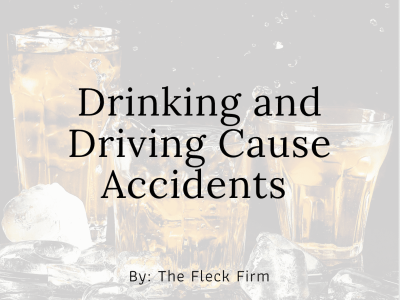You Really Do Need a Ride Home
If you drink alcohol, you may be mistaken if you think you can have multiple drinks and still be able to drive safely. Whether you’re simply wrong or you see being able to “handle” drinking as part of an image you must maintain, it can result in a severe or fatal injury to you, a passenger, or another person on the road.
In a recent study, subjects with alcohol use disorder (or alcoholism) showed significant impairment in cognitive and motor tests up to three hours after drinking an alcoholic drink made to mimic their typical habits, according to CNN.
The idea that someone can become tolerant of alcohol at higher exposures is common, but it depends on how much alcohol is consumed, how quickly, and how much time passes since having the drink. Many more people engage in “high-intensity drinking” (eight drinks at a time for a woman, ten for a man) than those with a drinking disorder.
Other attorneys take contingent fees of 33% to 50% of your settlement.
We want you to keep more of your money.
Our contingent fee is only 30% on cases settled prior to filing suit.
Study of Impairment of Those With Different Drinking Habits
The study was published in June in Alcohol: Clinical and Experimental Research. It looked at three kinds of young adult drinkers who were part of the Chicago Social Drinking Project, a continuing research study started in 2004. The 397 participants included:
- Light drinkers: People who drink up to six alcoholic drinks per week but don’t binge drink
- Heavy social drinkers: Those who have at least ten drinks a week and bing alcohol one to five times monthly
- Those with alcohol abuse disorder: Men who have 28 or more drinks per week or women who have 21 or more weekly. Both groups binge drink at least one-third or more days monthly
Those in the study were tested at two different times. They drank a mixed drink with alcohol, and the other time had a placebo that tasted like it had alcohol. Each time study participants were told they might get alcohol, a depressant, a placebo, or a stimulant.
The drink with alcohol had enough 190-proof grain alcohol to be roughly equivalent to four to five standard drinks. That was calculated to give each person a blood alcohol content that could result in their arrest for DUI if they drove.
All Groups Suffered Loss of Motor Skills and Mental Processing
Alcohol levels were tested before subjects drank and at intervals after finishing the beverage. Participants were asked how impaired they felt on a scale of “not at all” to “extremely.” They completed two cognitive performance tasks before drinking and at each half-hour interval.
Test results showed that heavy drinkers can manage larger doses without being cognitively impaired. At 30 minutes post-drink, heavy drinkers and those with alcohol use disorder passed the cognitive test, but lighter drinkers felt tired and sedated. Heavy drinkers and those with alcohol abuse disorder didn’t admit to feeling impaired when asked.
But all three groups did equally poorly on another test, putting pegs in holes, especially at the 30-minute mark. Drinking heavily slows motor skills and mental processing, no matter how much one usually drinks.
Sixty participants with alcohol use disorder had an additional drink equivalent to seven to eight drinks’ worth of alcohol. They averaged 50% more mental and motor impairment compared to the results after the initial lower dose. They also didn’t reach their pre-drinking performance level after three hours.
No matter how much you usually drink, your motor skills and ability to think are impaired even if you initially don’t feel affected. These problems get worse the more you drink. The best and simplest advice to stay safe is if you drink, don’t drive, and if you’re driving, don’t drink.
Contact Us Today
If you have any questions or want to speak with a lawyer about obtaining compensation for injuries caused by a drunk driver, call The Fleck Firm at (270) 446-7000 today. We can help you with the legal issues you face after a serious accident.








